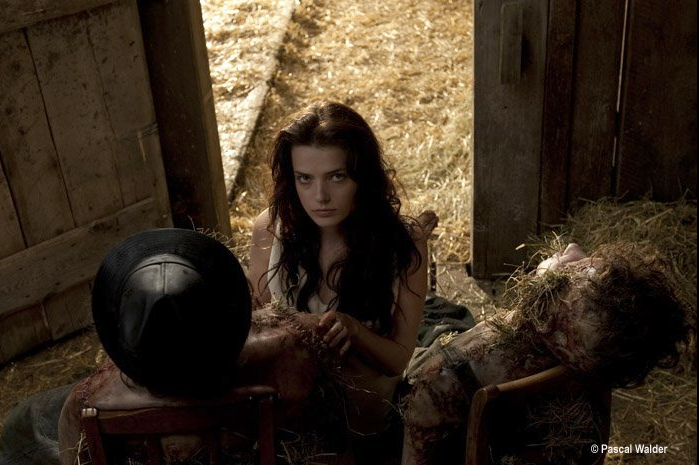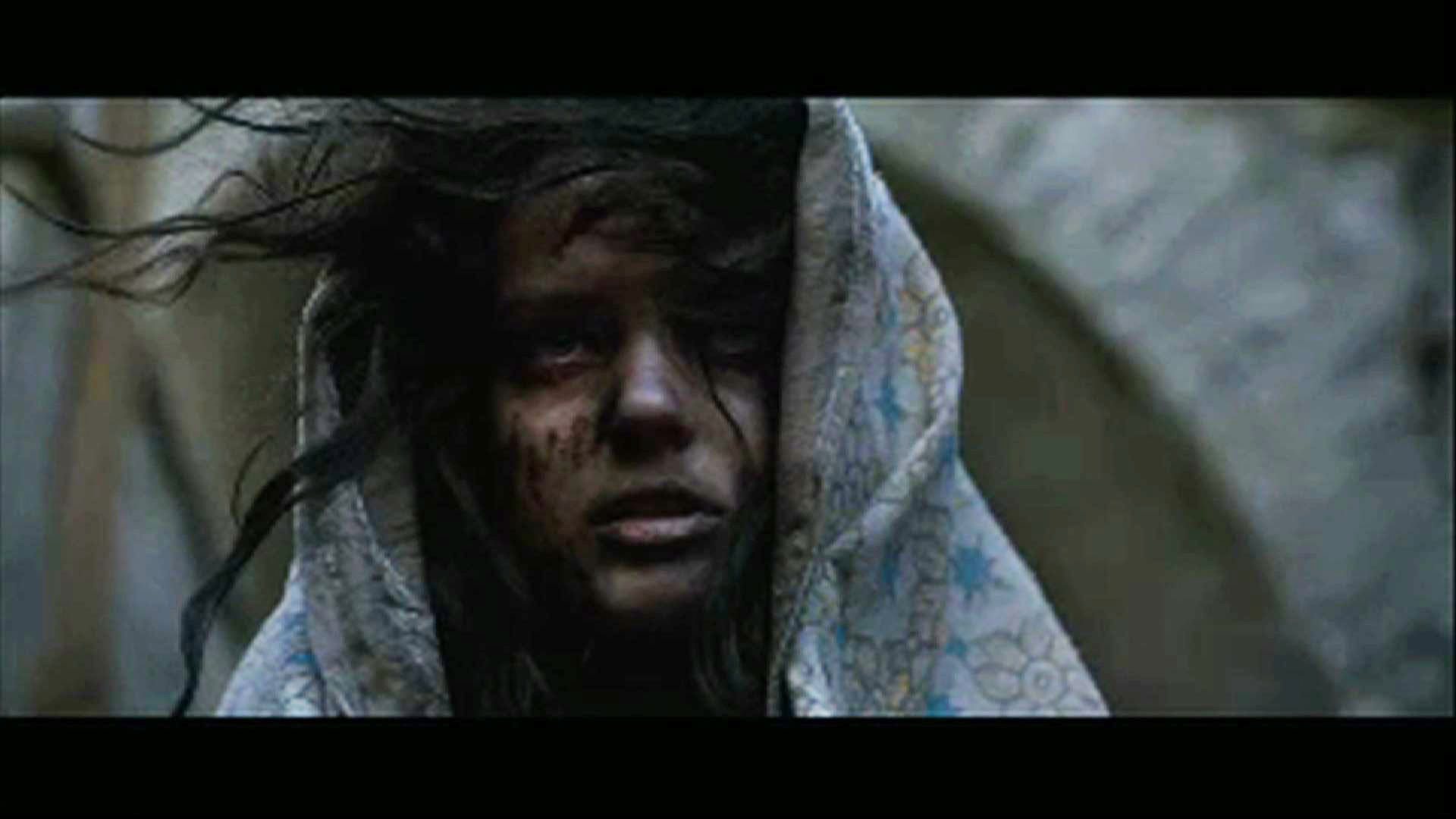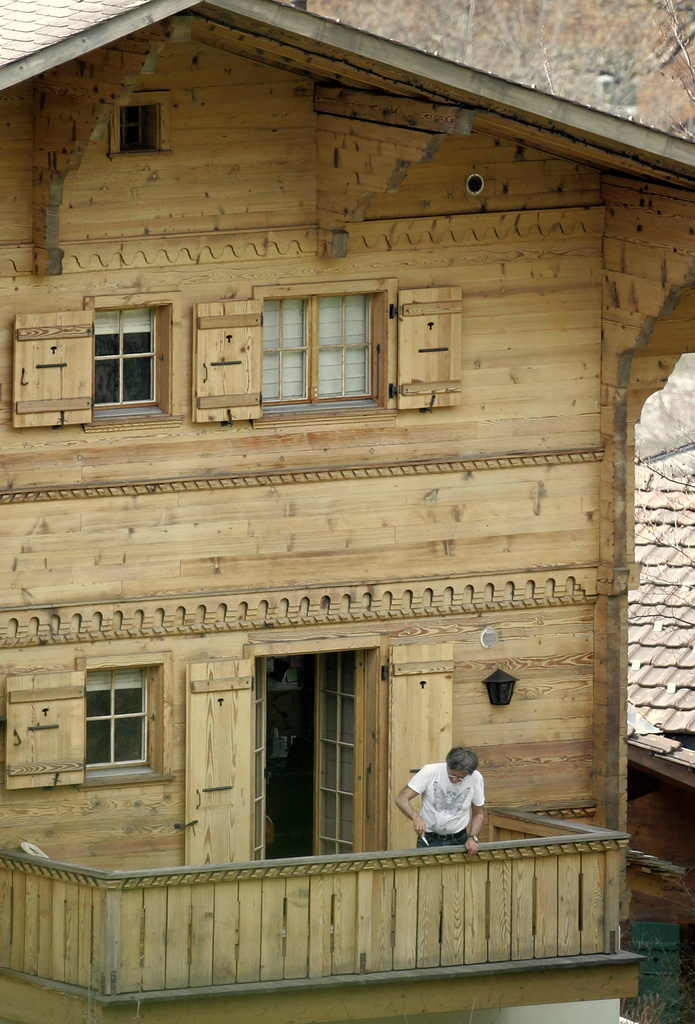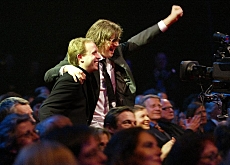Got themselves a crying, killing, living doll

Sennentuntschi, “a tale of lust, madness and murder” from star Swiss director Michael Steiner, is as controversial for what happened off screen as on it.
A film about a killer alpine sex doll would normally need no help in attracting publicity, but it was bitter personal bust-ups, near bankruptcies and talk of curses that grabbed the headlines.
“The project was really, really close to collapsing,” a relaxed and relieved Steiner told swissinfo.ch a couple of days after Sennentuntschi became the most successful Swiss film of the year – after only two weeks on release.
It all started in 2003, when Steiner and Pascal Walder, his cameraman on My Name is Eugen, which won the 2006 Swiss Film Prize, suggested filming the alpine legend of Sennentuntschi (see box).
Filming on the SFr5.5 million ($5.54 million) production began in September 2008 and finished ten weeks later – which was when it all started to go wrong.
Steiner’s company, Kontra, experienced serious cash-flow problems and an accountant for the government, which had chipped in a million francs, discovered that almost SFr3 million was missing – including wages of actors and technicians.
Things then went from bad to worse: in June 2009 Kontra was on the verge of bankruptcy and backers couldn’t agree on whether to stump up more money.
But in February 2010, when it looked as though the plug would be pulled on the project, a white knight appeared in the shape of Bernhard Burgener, the Swiss head of German production firm Constantin Media, who bought Kontra and settled the outstanding debts and wages. Seven months later, Sennentuntschi had its world première at the Zurich Film Festival.
“Normally if there are problems with a production it’s with the shoot – a production company folding after shooting is certainly unusual,” Steiner admitted.

More
Sex doll comes alive
Rocky horror
He said the shoot itself – up in the Schächen Valley (apparently home of William Tell) in canton Uri and down in the village of Soglio in canton Graubünden – was fine, although he acknowledged there are easier places to film than halfway up a mountain.
“The biggest problem was the falling rocks. We were filming at the bottom of a massive cliff face and we had to have someone keep an eye out for rocks. Twice a big one came down – and if those things hit you, you’re dead,” he said.
“Also it was cold. And Roxane [Mesquida, who plays Sennentuntschi] – well, she doesn’t wear much.”
But what the young French actress, who resembles Romy Schneider, lacks in clothes and dialogue – she is mute for the entire film – she makes up for in an ability to be threatening and vulnerable at the same time.
It’s alive!
Steiner’s version of the Sennentuntschi legend (see trailer) begins with a young girl picking mushrooms who, symbolically, unearths a skeleton instead.
The rest of the film is a flashback to the mid-1970s and tells two seemingly separate tales: the mysterious, dishevelled girl who appears in the village after the funeral of a young priest and who is protected from distrustful locals by the village policeman; and the three herdsmen (Sennen) up on the alp who get drunk and cobble together a doll (Tuntschi) which then, they believe, comes alive.
Are the two narratives connected? Is there a rational explanation, or do dolls really spring into life up in the hills?
Viewers gradually learn that nothing is what it seems, and that the truth, to quote another drama that pits reason against the supernatural, is out there.
“This narrative structure has never been done before in a Swiss film,” Steiner said, citing Christopher Nolan, director of Memento and recent hit Inception, as an influence.
“I wanted people to go away afterwards and think about the chronology of what happened – so the girl was there and then she went there and then she came back and so on…”
Be careful what you wish for…
Sennentuntschi has been described as a psychothriller, a supernatural horror and even an alpine western, referring to the sheriff role played by the policeman – the lone good guy keeping the lynch mob at bay.
So it’s not so much a Spaghetti Western as a Spätzli Western? “Exactly! It’s a Fondue Western! It’s a mixture,” Steiner laughs.
“But I’m not so bothered by genres. I made a film that I would want to see and there are elements of many genres, including romantic films. It contains many universal themes.”
One of these is the search for love, not to mention the power of male desires – and the trouble that ensues when they come true.
“But it’s also about outsiders struggling to be accepted. This applies not only to the girl in the village but also to one of Sennen, who has a secret…”
Certainly strange things can happen in isolated areas. In the award-winning Swiss film Höhenfeuer (Alpine Fire) for example, which was also shot in the valleys of Uri, a brother and sister get closer than they should and it all ends messily ever after.
And then there’s The Wicker Man – whose “folk horror” sub-genre would also be a possible home for Sennentuntschi – or Deliverance.
“Deliverance! My cameraman and I sat down and watched Deliverance twice,” Steiner puts his hands together as if to make a camera, before adding: “Er, obviously I don’t think Sennen are like that.”
Success abroad?
While Sennentuntschi could do for absinthe what Deliverance did for banjos, it is ultimately a mystery thriller – a sort of Brothers Grimm meets Stieg Larsson – and in addition to its commercial success has by and large been given the thumbs up by critics.
Steiner hopes to release it abroad, not only in Germany and Austria – where the Swiss German dialect will have to be dubbed – but also in Britain and the United States. If an English title is needed, swissinfo.ch suggests Shepherds’ Delight…
Would it appeal to foreign audiences? A couple of brutal rape scenes would probably mean a Restricted rating in the US and at least a 15 in Britain, but concerns that the film would be too graphic for mainstream audiences and not gory enough for genre junkies have not proved to be the case in Switzerland.
Sennentuntschi is a medieval alpine myth known across the Alps from central Switzerland to southern Austria.
There are several variations, but most involve some sex-starved farmers (Sennen are herdsmen who spend summer up in the Alps, looking after livestock and making cheese) getting drunk and cobbling together a female doll (Tuntschi in dialect) out of whatever they can find lying around the farm.
The farmers sexually abuse the Sennentuntschi, but just before it’s time to take down the cows, she comes alive and, to cut a messy story short, the farmers don’t live happily ever after.
Swiss playwright Hansjörg Schneider wrote a play based on the legend in 1972, which was shown on Swiss television in 1981 – triggering a storm of protests.
The national broadcaster was hit with a legal complaint for blasphemy – it wasn’t so much the sexual abuse but rather the giving a doll a soul that bothered the church.
Steiner, who would have been 12 years old in 1981, says he never saw or read the play and that it didn’t influence him at all when writing the script for the film.
The idea of inanimate figures coming to life is popular in literature and art: from Pygmalion, Ovid’s sculptor who falls in love with his (female) statue who then comes to life, to Mary Shelley’s 1818 novel Frankenstein and Fritz Lang’s 1927 film Metropolis.
Born in 1969 in Hergiswil, canton Nidwalden.
Studied ethnology, art history and film at Zurich University.
Worked as journalist, press photographer and as director at Condor Film, Zurich. Director of various commissioned films and commercials.
2006 Awarded Swiss Film Prize, Best Fiction Film for Mein Name ist Eugen (My Name is Eugen).
Die Schweizermacher (1978) – 940,000 tickets
Die Herbstzeitlosen (2006) – 600,000
Mein Name ist Eugen* (2005) – 580,000
Achtung, Fertig, Charlie! (2003) – 560,000
Grounding* (2006) – 380,000
*directed by Michael Steiner
(source: www.procinema.ch)

In compliance with the JTI standards
More: SWI swissinfo.ch certified by the Journalism Trust Initiative













You can find an overview of ongoing debates with our journalists here . Please join us!
If you want to start a conversation about a topic raised in this article or want to report factual errors, email us at english@swissinfo.ch.